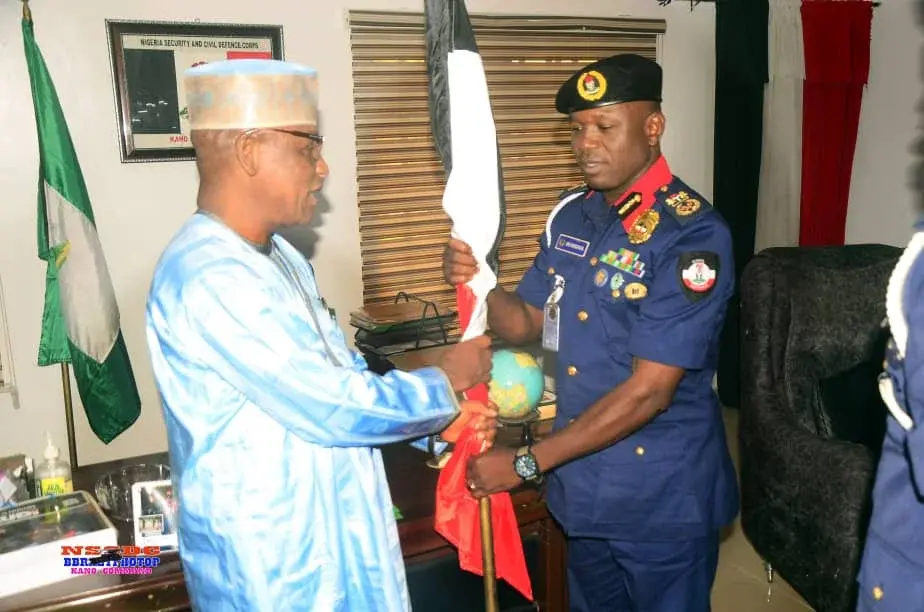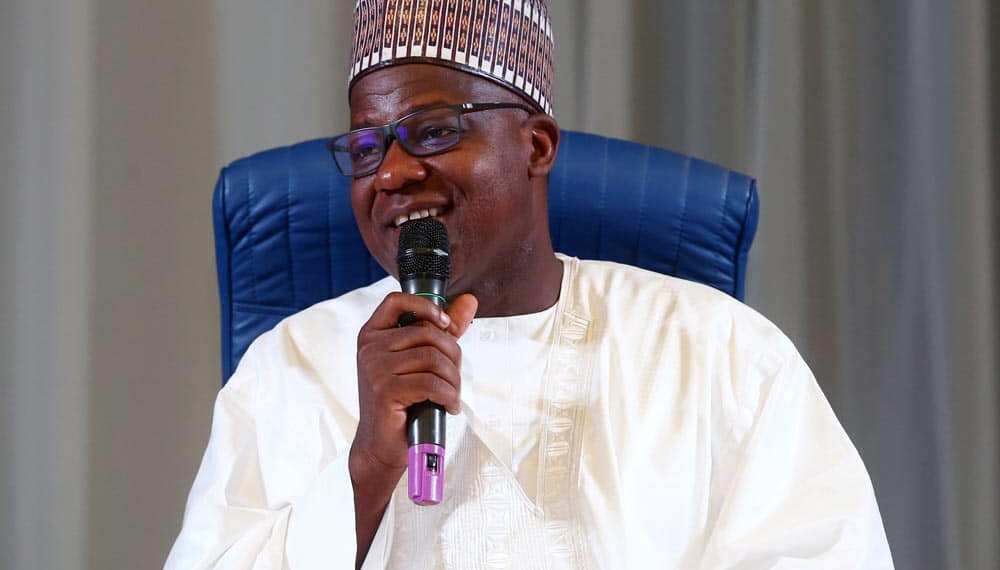In recent developments from northern Nigeria, Mr. Bala Bawa-Bodinga has officially taken over as the new Commandant of the Nigeria Security and Civil Defence Corps (NSCDC) for Kano State. His appointment comes at a time when security concerns are ever-present in the region, attracting keen attention not only from residents but also from national and regional security watchers.
Stepping Into Security Leadership: A Key Appointment
According to a statement issued by the NSCDC Public Relations Officer, Mr. Ibrahim Idris-Abdullahi, Mr. Bawa-Bodinga assumed command early this week, bringing a wealth of experience to his new post. He replaces Mr. Shafiu Abdulmumini, whose recent retirement marked the end of a distinguished career in civil defence services. The transition underscores the NSCDC’s ongoing efforts to maintain robust leadership as the agency adapts to new security challenges.
Bawa-Bodinga’s Security Track Record: Diverse Roles Across Nigeria
The new Kano Commandant is widely described within NSCDC circles as highly versatile, diligent, and committed to law enforcement. Before his Kano posting, Bawa-Bodinga led the NSCDC command in Jigawa State—a neighboring region facing its own distinct security hurdles. His professional journey has seen him navigate several critical assignments, demonstrating adaptability and operational knowledge.
- Chief Security Officer (CSO) at Federal Capital Territory (FCT) Secondary and Universal Education Boards
- CSO at the National Hajj Commission and Christian Pilgrims Commissions in Abuja
- Head of Anti-Vandal Unit in Akwa Ibom, combating pipeline and infrastructure crimes
- Leader of the Critical National Assets and Infrastructure Department in Zamfara State
- Head of Operations for the FCT Command
These roles placed him at the intersection of asset protection, religious tourism, and community security—each an essential aspect of Nigeria’s internal stability. His experience with both “soft targets” such as schools and major infrastructure demonstrates an understanding of the breadth of Nigeria’s security landscape.
Educational Background and Professional Training
Bawa-Bodinga was born on February 7, 1973, in Bodinga Local Government Area of Sokoto State. He earned his Bachelor’s Degree in Hausa Language from Ahmadu Bello University, Zaria—a detail that is noteworthy in a diverse country, as it emphasizes local language proficiency and an understanding of indigenous cultures.
He has also participated in many professional courses, both within and outside Nigeria, positioning himself as a modern security leader with global insights tailored for local realities. His credentials include a Certificate in Intelligence Operations from the International Institute of Professional Security (IIPS), an institution recognized for training top-level security operatives in the sub-region.
Immediate Orders: 24-Hour Patrols and Vigilance Across Kano
Stepping into his new role, one of the first directives from Commandant Bawa-Bodinga was the institution of round-the-clock patrols and increased surveillance over critical national assets in Kano State. This prompt action is seen by many experts as an effort to reinforce a proactive security posture—especially in an environment where critical infrastructure and public facilities are sometimes targets for criminal activity.
His approach highlights an understanding that preventing incidents through visibility and readiness is less costly than responding to attacks after the fact. The move has been welcomed by local communities, industry stakeholders, and government officials, who frequently cite the economic and social disruptions caused by threats to infrastructure.
Why This Matters: Local and Regional Impact
For Kano State—one of the most populous and economically vibrant regions in northern Nigeria—safety is not just a matter of preventing crime but of assuring investors, protecting livelihoods, and maintaining community trust. Across West Africa, robust security initiatives like these can help disrupt crime networks that often cross state and even national boundaries.
Security experts note that appointments like Bawa-Bodinga’s are scrutinized not only for experience but also for track record in inter-agency collaboration, resource management, and public engagement. According to Mallam Lawal Zubairu, a Kaduna-based security analyst, “It is critical that new commandants go beyond the status quo, engaging both state governments and citizens as partners in protection. The landscape is shifting, so our tactics must evolve.”
Broader Regional Context and NSCDC’s Role
Across West Africa, the NSCDC has been seen as a model for civil defence reform. Nigeria’s approach often influences policy thinking in neighboring countries like Ghana and Niger, where similar organizations face challenges ranging from pipeline vandalism to the protection of critical national assets.
For everyday citizens in Kano and the surrounding region, the effectiveness of civil defence agencies impacts life in direct ways—ensuring schools remain safe, utilities function, and religious or cultural events proceed without disruption. It also affects confidence in the state’s ability to manage crises, whether from criminal gangs, riots, or environmental disasters.
Community Voices: Kano Residents and Stakeholders React
Community leaders in Kano have expressed optimism regarding Bawa-Bodinga’s posting, emphasizing the expectation of improved coordination with local vigilante groups and timely communication during emergencies. Alhaji Sani Musa, a business owner in Sabon Gari, remarked, “When security heads engage with the grassroots, it helps everybody feel safer, especially amidst economic uncertainty.”
A representative from an educational NGO, Mrs. Hafsat Abdullahi, added, “The focus on protecting schools and education boards is notable, given recent events where schools have been soft targets. We hope to see greater collaboration between NSCDC and the education sector on safety training and crisis drills.”
Challenges and the Road Ahead
The task before the new Commandant is far from simple. Kano’s size, economic diversity, and social complexity mean that traditional methods aren’t always enough. Experts say challenges may arise around resource allocation, staff morale, and the balance between visible enforcement and community relations.
- How will 24-hour patrols be sustained without fatigue and resource depletion?
- Can NSCDC leverage technology—such as CCTV, drones, and rapid alert systems—to complement human patrols?
- What mechanisms will encourage the public to share information and work alongside the corps?
These are pertinent questions that will determine whether early actions can mature into long-term security solutions that serve both local and national interests.
Looking Forward: Setting the Tone for Future Security
As Bawa-Bodinga embarks on this crucial role, stakeholders in Kano, across Nigeria, and within West African networks will be watching closely. His experience suggests readiness for the challenge, but outcomes will depend on continuous dialogue, policy adaptation, and measurable results.
In an environment where trust in security institutions must be constantly earned, his tenure could set new benchmarks for civil defence leadership—not just for Kano State but potentially for the wider region.
Do you live in Kano or have experience with NSCDC activities in your community? What are your thoughts on the appointment of Mr. Bala Bawa-Bodinga and his immediate directives? Share your perspective in the comments—and follow us for ongoing updates on security, governance, and community safety in Nigeria and beyond.
Have a security story or news tip from your area? We’d love to hear from you! Share your experiences or get your story featured by emailing us at story@nowahalazone.com. For general support or to discuss other community issues, reach out via support@nowahalazone.com.
Stay in the loop: join the discussion and follow us for more updates on Facebook, X (Twitter), and Instagram!
Your voice helps shape conversations about security and leadership in Nigeria—don’t hesitate to get involved!










